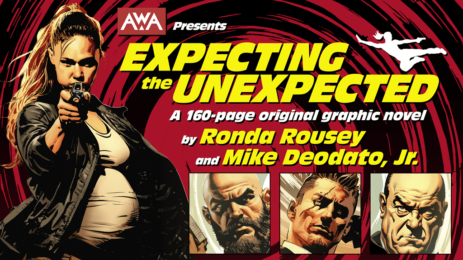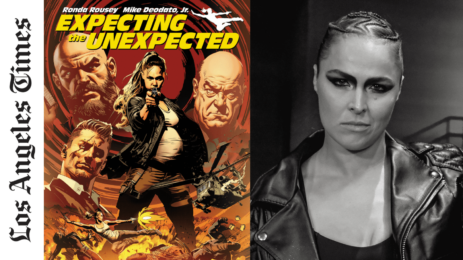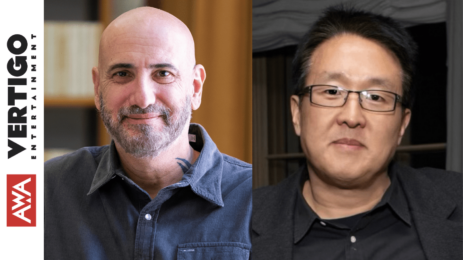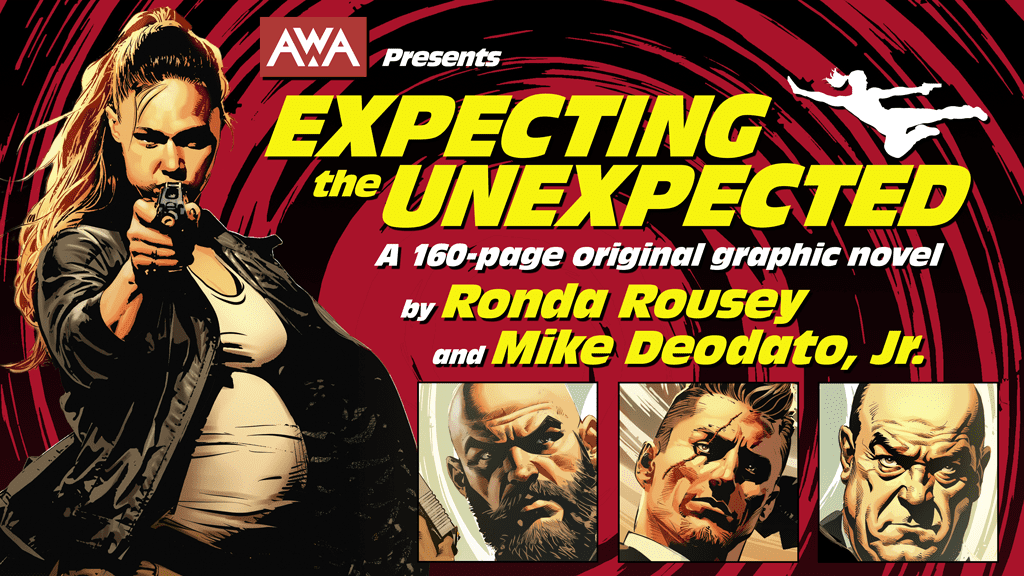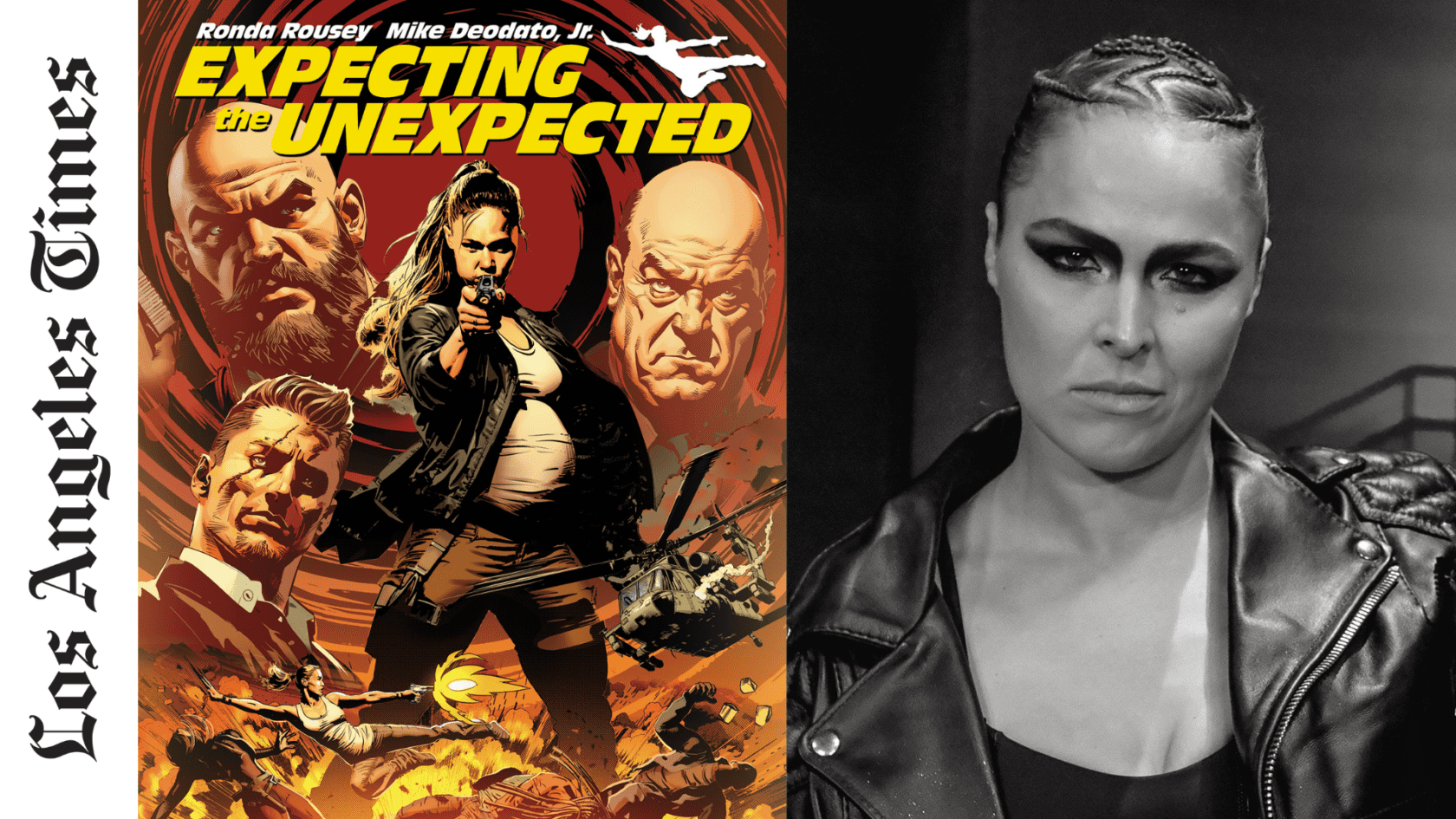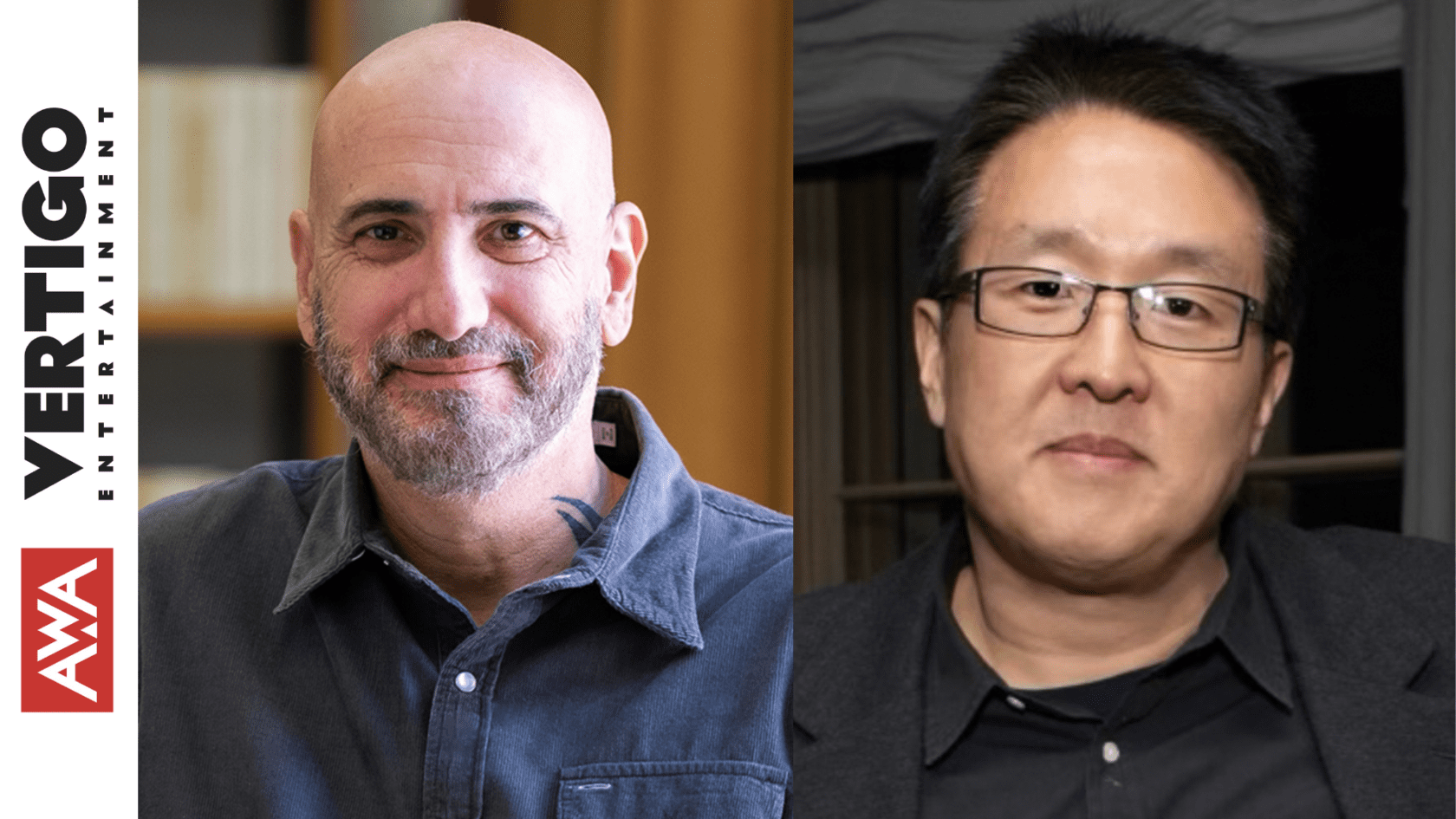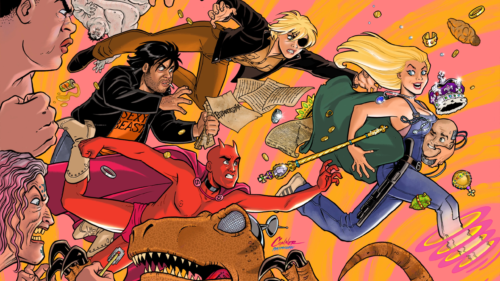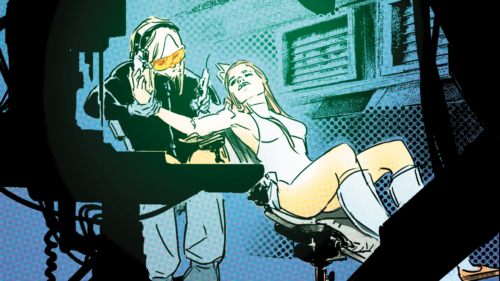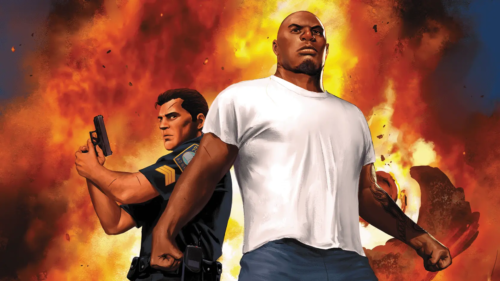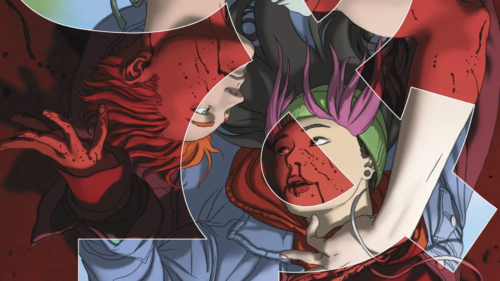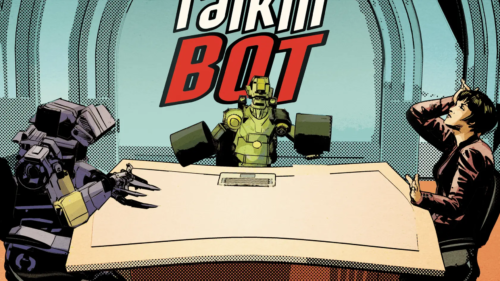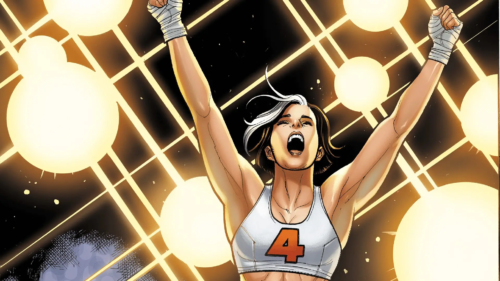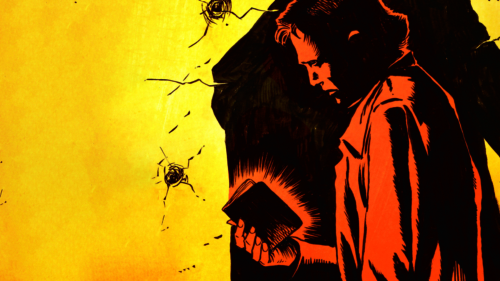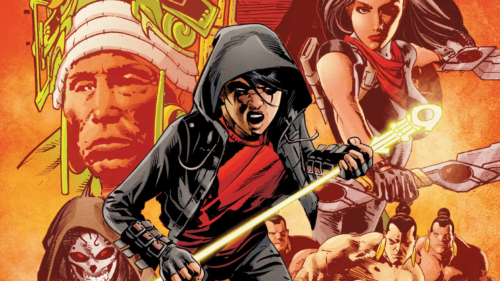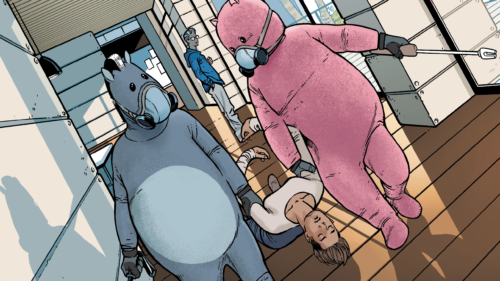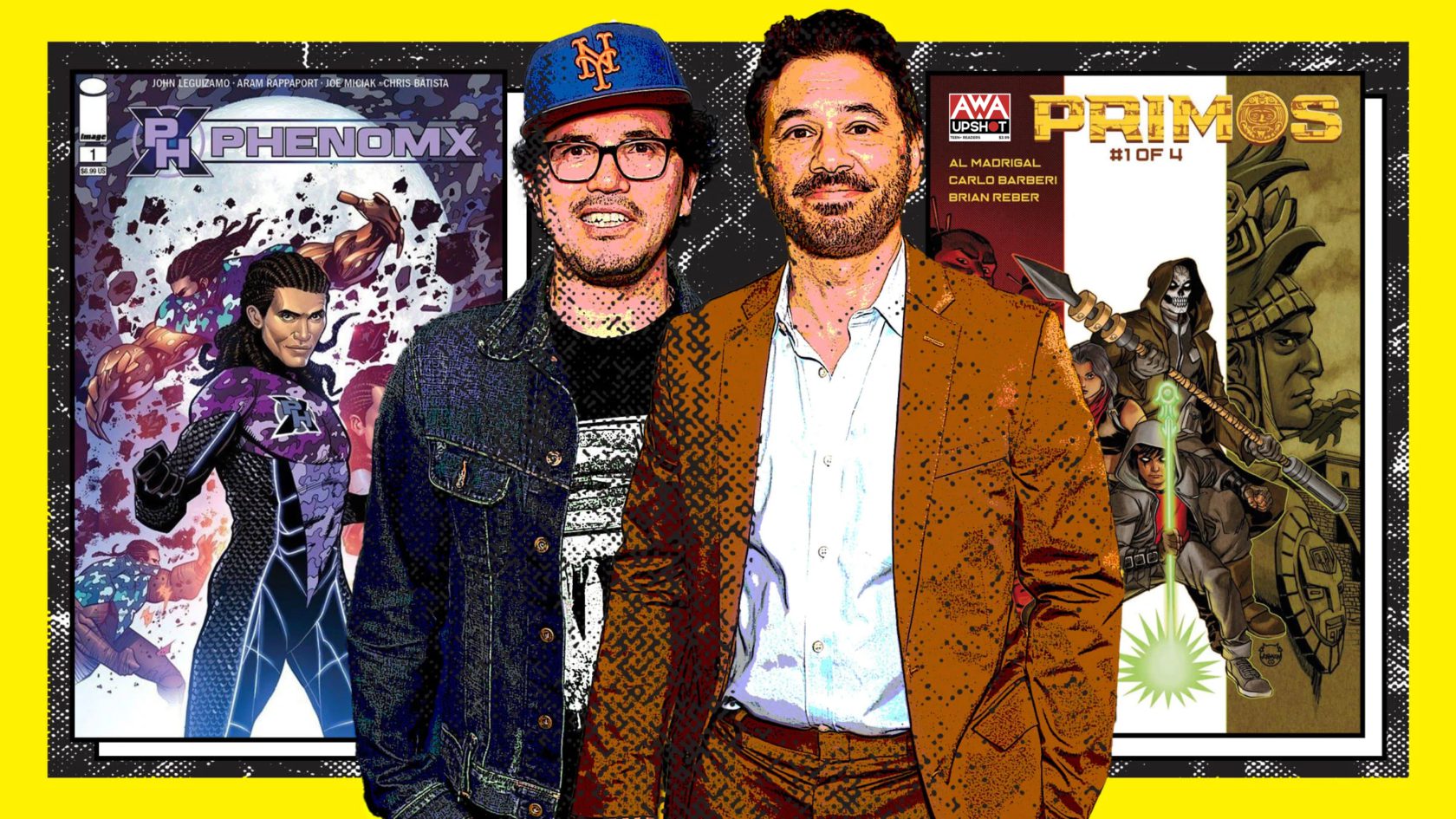
The two celebrated comedians talk about their new comic books featuring Latino superheroes, Hollywood’s poor treatment of Latinos, and Latino Pacino.
By Marlow Stern, Daily Beast
“We’re brothers in the same struggle,” explains John Leguizamo.
I’m speaking with Leguizamo, the Emmy and Tony Award-winning Encanto star, and Al Madrigal, stand-up comic, ex-Daily Show correspondent, and actor in the upcoming Morbius, about their new comic books about Latino superheroes.
The two celebrated comedians from opposite ends of the country—Leguizamo is Colombian and grew up in Queens; Madrigal is Mexican-Italian and was raised in San Francisco’s Sunset District—became so frustrated with the lack of Latino representation in the comic-book world that they made their own. Leguizamo reunited with Spawn’s Todd McFarlane for PhenomX, featuring Max Gomez, who’s given superpowers after a government experiment and navigates a war on the streets of New York City; Madrigal, meanwhile, joined forces with former Marvel Comics Editor in Chief Axel Alonso on Primos, a book about three young descendants of warring Mayan god-brothers scattered across Central and North America who must put a stop to one of the brothers’ plans of global destruction.
Leguizamo and Madrigal hope that PhenomX and Primos will not only allow young Latino kids to see superheroes that look like them—something they never saw as kids who grew up devouring comics—but also be spun off into TV series and movies that provide more opportunities for Latino talent, which is something that Leguizamo already does through his production company NGL collective, and Madrigal via his overall deal with CBS and as co-founder of the All Things Comedy podcast network.
The Daily Beast spoke with Leguizamo and Madrigal about their respective Hollywood journeys, the alarming lack of Latino representation in Hollywood (and among superheroes), and so much more.
Madrigal: What’s up! I finally get to meet you, dude. There’s only seven Latinos working, and we haven’t met! [Laughs]
Leguizamo: That’s crazy! How is that possible? I’m glad I’m meeting you.
What made you fall in love with comics in the first place—and what comics did you devour as a kid?
Leguizamo: You know, I had a huge love of comic books. I think every teenage girl or boy identifies with comic books because you feel like you’re a larva—nobody sees you, nobody cares for you, nobody thinks you’re special—and comic books always talked to that point with finding your hidden power. It always spoke to that teenage angst. The only thing was, being a Latin person, you never saw yourself represented anywhere, so you had to extrapolate. You always had to do that math in your head, like, “What if they were Latino? What if they had names like ‘Garcia’ and ‘Lopez?’ You do that unconsciously to feel included, because you want to fit. I wrote the comic book so Latin kids don’t have to do that anymore, and to show that we are—and always have been—great storytellers. And there are Latin superheroes. Look at all the Braves, Mets, and Dodgers. Look at Devin Booker of the Suns. Carmelo Anthony is half Puerto Rican. We have great superheroes. How can you not see that and then translate that to superhero movies and comics?

Image Comics
Madrigal: I’m a crazed Bay Area sports fan—Niners, Warriors, Giants. I wanted to play sports so badly when I went to high school and got cut from every single sports team. Then I found myself at 13, 14 years old going to the local comic-book store in San Francisco, and like John said, you’re not seeing anybody that looks like you. I found the West Coast Avengers, which was an easy way for me to jump in. And remember Super Friends? I always loved Apache Chief, and I wondered, “Why am I always gravitating to the minority characters?” They did such a horrible job naming Black superheroes, where it was like Black Lightning, Black Panther—always Black something. But there were never any Latino superheroes. They didn’t exist. It’s Blue Beetle and America Chavez, and she’s, like, an alien from another planet—she’s not even of the Earth. We didn’t have any of that. You’re talking to two guys who saw a problem and did something about it. It’s crazy to me that it took us, and it took this long.
It is crazy.
Leguizamo: We’re the oldest ethnic group in America other than Native Americans. And we’re the largest ethnic group in America, and the most excluded. It’s just bizarre to me that it continues to be pervasive. You saw the Netflix stats that just came out. They had a lot better representation among Black people and people of color, but Latinos are still coming up short. And that’s confusing to me.
Madrigal: When you look at USC’s Annenberg study, it says we’re 20 percent of the population but only 5 percent of the characters on TV and film, and two of those is J. Lo and Cameron Diaz. It’s fucking nuts to me.
Leguizamo: And then you got Encanto and you put us all in how we really are, and it’s a mega-hit. Can’t a Hollywood studio exec, Marvel or DC do that math?
Madrigal: And you look at Shang-Chi. Money Heist. Squid Game. The proof is there, but it’s just not happening. It takes us partnering with people who are well-established industry experts—John with Axel Alonso and me with Todd McFarlane—to get this done. And with TV and film, we have so much longer to go.

That USC Annenberg study was released last year, and it analyzed the 1,300 highest-grossing movies between 2017 and 2019, and it found that just 7 percent of the movies total had a Hispanic or Latino lead actor, which is embarrassingly low, and that over one-third of all roles in the films for Latinos were playing criminals.
Madrigal: It boggles my mind. We’re such massive consumers of all media to the point where I guess they don’t think they need to make anything for us, but when they do it’s incredibly popular? Like John was saying, look at Encanto. The Madrigal family is probably a key reason why. [Laughs] But you look at Coco, you look at all these recent examples of success. What I’ve had to do is take it upon myself to jump in. I met with CBS and I asked to get partnered up with a Latino showrunner for a TV project, and the guy looked at me and goes, “There’s a lot of women that are very busy right now, but as far as a Latino showrunner in comedy, we’re kind of hoping that becomes you.” There wasn’t anyone. So, I’ve been writing ever since and trying to change that—and offering scholarships and doing whatever I can to motivate more people to join the entertainment industry. Until we rise up the ranks of writers’ rooms, become showrunners and EPs who are pitching and developing our own projects, we’re just not gonna get there. And then on the executive level, that’s a whole other fucking thing. Do you ever pitch to anyone that looks like you?
Leguizamo: Never.
“Until we rise up the ranks of writers’ rooms, become showrunners and EPs who are pitching and developing our own projects, we’re just not gonna get there. And then on the executive level, that’s a whole other fucking thing. Do you ever pitch to anyone that looks like you?”
What was it like when you were younger and not seeing yourself be represented in media? How alienating did that feel?
Madrigal: My dad was doing everything he could to send us to private school. After he passed, my cousins told me he and my uncle would go to ships in the middle of the night and sell Marlboro Reds to all the people onboard. He was selling art, selling wine, ran a little sports book, and do whatever he could to push me into the upper ends of society. I went to St. Ignatius College Preparatory school, because he knew what he was trying to do. And then, when I told him I wanted to be a comedian, he was like, “Are you out of your fucking mind?” He just didn’t get it. With Mexicans, my dad was a high school student in the 1950s and tried to assimilate quick. He was walking around with a sweater over his shoulders trying to fit in. We were told, “This is what you need to be like them,” pretty much, and so the arts weren’t really supported at all. It’s important to realize that there are creative jobs in show business that pay well. I didn’t even know there were jobs. I just knew I loved SNL and SCTV. I just wanted to be like Rick Moranis and Martin Short.
Leguizamo: There’s so much negative representation too at the same time that you’re being excluded, so you’re looking at Latin people being arrested a lot. I became a rebel, in a way. I went the other way. I thought, “Why am I going to let society clown me? I’m not in the history textbooks. I’m nowhere. I’m not gonna let myself be clowned by society.” So, I started going the wrong way—problem child, that kind of thing. And I was saved. My parents fought real hard to save me, school made me go to therapy, and there were a lot of great programs that helped me to get here.
Al, let’s start with your comic Primos. How did you develop the concept?
Madrigal: When you talk about PhenomX and Primos, it’s so cool because there’s such different origin stories for these characters. When I was doing research, I stumbled upon K’inich Janaab’ Pakal, who was a [Mayan] emperor from 603 to 683. The reason he was able to serve so long was because they thought he was a descendant of the first people on the planet, and I used that. I read that he died in 683, and archaeologists were looking for his tomb the entire time but only found it in 1948. And then they found these secret staircases. It was Indiana Jones. And when I was talking to Axel [Alonso] about it, I said, “And the body wasn’t there because he’d been in space for centuries.” They always talk about how “aliens built the pyramids”—well here they did, and two brothers went to space to figure out the Earth’s proper place in our universe, and the planet had to become enlightened. So, imagine these Mayan emperors coming back in 2022 and see their people enslaved on the border and children locked in cages. They see overpopulation, crime, and how Spanish conquistadors had taken all their people and put the nail in the coffin of their civilization. So, one evil brother says, “Fuck it—I’m going to kill everybody,” and the other brother activates the Primos.
And John, could you talk about the origin of PhenomX and reuniting with Todd McFarlane?
Leguizamo: I love Todd. He gave me my first opportunity to be a supervillain in Spawn back in the day. And they’re redoing it now! The origin story of my comic is, in America they take poor communities—Black and Latin communities—and they put all the toxins, all the electric plants, radiation and everything to pollute their environments. So, I thought, “What if instead of killing everybody it made us powerful?” The government recruits this guy, Max Gomez, who’s been wrongfully accused of a crime, and they put him through all these experiments, and he becomes PhenomX. He can change to any element in the world except live energy—which can kill him. And his brother, from the same neighborhood, went the other route and became a right-wing cop, so they’re fighting each other.

John Leguizamo as Clown/Violator in Spawn | New Line Cinema
It’s always struck me as bizarre that there aren’t more superheroes of color because when you think about so many superhero origin stories—the government experimenting on people and giving them superhuman powers—those government experiments historically happened on Black and brown people.
Madrigal: I was telling Axel, “Captain America, come on—you really think they tried that on a white guy first?” [Laughs] And you saw that story come out in The Falcon and the Winter Soldier, and that’s actually Axel’s doing. So, Axel is responsible for Miles Morales and took a lot of shit for it from Marvel when he was introducing a lot of the diversity. I was pitching Axel an idea and I go, “What about Captain Mexico? This guy who jumped out the window, ran back to Mexico immediately, and he’s fighting crime down there.” He goes, “You could never do it. Marvel would sue you and own you. Think of something that you could do that’s unique.” And that’s how Primos came about. But that was the first thing I thought: “You really think they fucking shot up a white guy first? There’s no way.”
Leguizamo: Mustard gas was tested on Latin people and Black people during World War II, and then the eugenics testing on women—sterilizing them in the early 1900s—was Latinas and Black women.
Is the goal of these comics to also create IP that gets spun off into TV shows, movies, you name it? So you’re not only improving diversity in the comic book arena but elsewhere?
Leguizamo: We definitely want to kick the comic-book world’s ass, so I want this comic book to live and have a lot of generations, and obviously I’d love it if it was a TV series or a movie franchise or something like that. I’ve been talking to a lot of studios and getting… some interesting responses. I don’t know if I can share them because I’m not sure about the legality of that stuff.
Madrigal: We’ve had a bunch of people reach out before we launched. But again, if you’re an independent publisher who’s not Marvel and not DC, you want as many people to see this as possible, because ultimately, the idea is that I want teenagers to go into a comic book store and look and see themselves on a cover. We’re doing it, but if it also becomes a TV series or a movie, then sure. Why not.

Al Madrigal in his stand-up comedy special Shrimpin’ Ain’t Easy |
Leguizamo: It’s fascinating, because with Encanto and the phenomenon that that is, I get a lot of ‘gram hits from parents whose kids see themselves in the cartoon—they have the same hair, or the same skin color, or the same features—and these kids feel like it’s everything. And that’s what you hope from a comic book as well—that teenagers see themselves and think, “Yes, I can.”
I’d be remiss if I didn’t ask about “We Don’t Talk About Bruno.”
Leguizamo: We can’t talk about Bruno, man! [Laughs]
It really is a global phenomenon. It’s the new “Let It Go.”
Leguizamo: No, we’re No. 1! “Let It Go” was only No. 4. [Laughs] I mean, it’s crazy. “We Don’t Talk About Bruno” has gotten hundreds of millions of hits on Spotify and is No. 1 on the Billboard. It’s wild what Lin has done with the music.
Do you think Marvel and DC are doing a good enough job of Latin representation? We do have Miles Morales, but he’s only been animated in the films. And there’s Zoe Saldana—but she’s in green makeup. I know Salma Hayek was recently in The Eternals and they’re coming out with Moon Knight starring Oscar Isaac, but that’s the first example of there being a Latin lead in a live-action superhero project.
Leguizamo: It’s not enough. If we’re 20 percent of the population, then I want 20 percent stories, 20 percent characters, 20 percent executives. I don’t want less than that. So, out of 10 characters, two should be Latino in a movie. If there are 10 superhero comic books, two should be Latin superheroes.
Madrigal: I’m usually the only one on a Zoom saying all this shit so I’m just like, “Yes. Yes. Yes.” We are watching everybody else’s shit. I just had a meeting with HBO, and they said, “Oh, Latinos love Curb Your Enthusiasm.” So, they think they don’t need to make something else. I can’t tell you how many auditions I’ve been on where it’s for an ethnic part and it’s me, Michael Strahan, and a Chinese guy. They don’t care how they color it up. They just want to throw everything at it because they know they can’t have an all-white show. My career will probably suffer, but I’m not going to be your ethnic friend anymore in any of your fucking shows. I’m not doing that shit. I’m done. I’m writing myself in a lead part. It’s got to change. And look, Miles Morales is animated but he’s not going to be for long, because that was a massive, massive hit. How many massive hits do Asians and Latinos and Black people need to have before the studios realize that people are going to come out? Give us our 20 percent.

Miles Morales in Spider-Man: Into the Spider-Verse | Sony Pictures
What sort of cultural concessions have you had to make as you rose up the Hollywood ranks, given how poor the choice of roles is?
Madrigal: I got two kids in private schools—one in high school and one in college. Sometimes you’re like, shit, this isn’t great but I gotta work. You know what it’s done a horrible job of—and this is true of Latino comedians, and stand-ups, and something I really want to change—is I think it pitted a lot of us against each other. We’re so competitive over such a small pot, and you see the same guys in auditions, and you think, “Oh, he got that.” Historically, it’s made a lot of Latino comedians be competitive with each other—“This guy hates this guy,” “This guy stole this guy’s material.” And yeah, you take a lot of roles you normally wouldn’t touch because you gotta work. And they are hacky. I haven’t told this story, but there were points on The Daily Show With Jon Stewart where they asked me to do some stuff and I was like, “Yeah, I’m not doing that. You don’t want me to do that, trust me.”
Can you recall a sketch they wanted you to do where you were like, fuck that.
Madrigal: I know exactly what the sketch was where I said, “Fuck that—I’m not gonna do that.” But there are names attached to that one… again, it’s just playing up [stereotypes].
Leguizamo: That’s why it’s important to have an Al in the room or a Latino in the room, because if there are no Latinos there, there’s nobody to say “This is degrading.” And then you see all those negative portrayals that are damning and demeaning. I came up a little earlier than Al, so there weren’t any comic Latin roles available. It was only drug dealers, killers, murderers, servants. That’s all there was. And it was always me, Benicio [del Toro], Luis Guzman, and Ben Bratt going in and acting all hood-y. That was it. And I got tired of playing that shit. I’m like, “I went to NYU! I’m an educated man! Why am I being offered all this shit?” All my white friends in my NYU class were killing it, getting five auditions a day, and I get one every five months for a drug dealer or murderer. I knew the deck was stacked against me, so I was like, fuck it, I’m gonna write my own shit. I see the world very differently than the media. I see a world full of intellectuals and funny people. I’m going to write the world I represent—the real world.

John Leguizamo and Bob Hoskins in Super Mario Bros. |
And John, you did play a movie superhero: Luigi, in Super Mario Bros. back in ’93, which was pretty groundbreaking casting at the time from a diversity standpoint.
Leguizamo: Oh yeah, absolutely. It was huge that these directors were that bold to take the risk and cast a Latin man. My plays were huge in New York City and on HBO, and I was winning Emmys and Tonys, so they knew I had something—that Latin people could do something—but nobody was willing to take the risk. With Latin people, they don’t think you’re talented, they think it’s just natural. They don’t think we’re gifted, but that we can just naturally do that stuff, so they don’t see the craft in what you’re doing. But these directors took a big risk and put me, this Latin guy, opposite an Oscar-nominated white guy in Bob Hoskins. And the thing was, I had to stay out of the sun to get roles—but when I get in the sun, I start getting mad dark. And we were filming in Wilmington, North Carolina, and if you see the film, you’ll see I get browner and browner with each passing day, and by the end of the movie, me and Bob are two totally different races.
Madrigal: When my kids were really little, it was the summer and one of my son’s friends was convinced I was Billy Dee Williams.
Leguizamo: [Laughs] That’s a handsome man!
Madrigal: [Laughs] I know, I know. I’ll take it.
Leguizamo: If you look at Carlito’s Way, though, I was in that movie and it’s like: You couldn’t find one Latin dude to be Carlito? Then he did Scarface? So it’s like, Pacino is an honorary Latino? How did that happen?
“I came up a little earlier than Al, so there weren’t any comic Latin roles available. It was only drug dealers, killers, murderers, servants. That’s all there was. And it was always me, Benicio [del Toro], Luis Guzman and Ben Bratt going in and acting all hood-y. That was it. And I got tired of playing that shit.”
Viggo Mortensen is also pretty browned up in that movie playing a Latino guy. But that must have been a Brian de Palma thing. He really loved seeing Latino Al Pacino.
Madrigal: Not anymore—well, I guess it’s still happening.
Leguizamo: In Argo! Ben Affleck is playing a Latino CIA guy. That was a Mexican brother who came up with that, so [Affleck] puts on some black hair.
Ah, right. I forgot he played a Mexican character in that movie. It’s absurd. Al, you star in a superhero movie out soon, Morbius. What was it like to play FBI Agent Al Rodriguez?
Madrigal: It was super cool. I was in London for two months working with Jared Leto, and Tyrese was my partner. They did already put Michael Keaton in the trailer, so I got to work with him. I walked up to Michael Keaton and said, “I’m not even going to pretend to be cool around you. I saw Gung Ho in the theater. I am a massive fan.” That guy is my hero. His range, from Batman to Dopesick to comedies like The Other Guys? He’s amazing. And it was fun to be in action scenes, and we have this director Daniel Espinosa, who’s so good.
Leguizamo: Is he a Latino guy?
Madrigal: Yeah! He’s a Chilean who moved to Sweden when he was 2. He speaks fluent Spanish. He did the movie Safe House with Ryan Reynolds and Denzel [Washington]. He comes up to me the very first day and goes, “Al—you are my baby bird. And when I tell you that you can fly, you can fly.” I can improvise when he gives me the word, and it was the best. And then Jared Leto started going off-book the very first scene, so I went into it.
As two successful Latino guys in Hollywood, what are you trying to build?
Leguizamo: I’m trying to be like Tyler Perry, man. I think Tyler Perry said it best when he said that they’re not going to give us a seat at the table, so we need to build our own table. We gotta create our own production companies and produce it ourselves. That’s what I’m in the business of. I want to inspire the next generation and create opportunities, so they don’t have to hit that bulletproof, plexiglass ceiling. I want them to have the opportunities that I didn’t have.
Madrigal: Look at the success of Cheech & Chong. Cheech [Marin] was one of the very first guys I met in Hollywood. We were on a show called The Ortegas that was a remake of a show called The Kumars at No. 42—and it never saw the light of day. So, my introduction to Hollywood is I was supposed to air after The Simpsons in 2003, when I was the lead of a show with Cheech playing my dad. Renee Victor from Coco played my grandmother and Terri Hoyos was in it. That show Murderville that’s on right now—that was the format. A guest—Shaq—would knock on our door, 22 Mexican extras were in the living room, it was a funeral for my dad’s real estate partner, and they had no idea what was happening. It was a great idea and great format, but they buried it.
Cheech grabbed me and he says, “I want to tell you two things you always need to remember: Be nice to everybody you ever meet, because everyone’s gonna love to tell their ‘Cheech is an asshole’ story. And the second is: mailbox money. We owned every single movie, every single album. You need mailbox money.” I never forgot that, and it led me to start All Things Comedy, which is the No. 1 comedy podcast network in the world. We’re making three movies right now. I have a production company, a podcast network, and an overall deal with CBS. If that Latino showrunner doesn’t exist, I will be him. I’m sick of being a pawn in somebody else’s game. I’m ready to be the person making the choices, and they’re going to include a lot of Latinos and Latinas in the process.
Latest News
Latest News
Trending Titles
Bold Original Stories Spanning Genres
